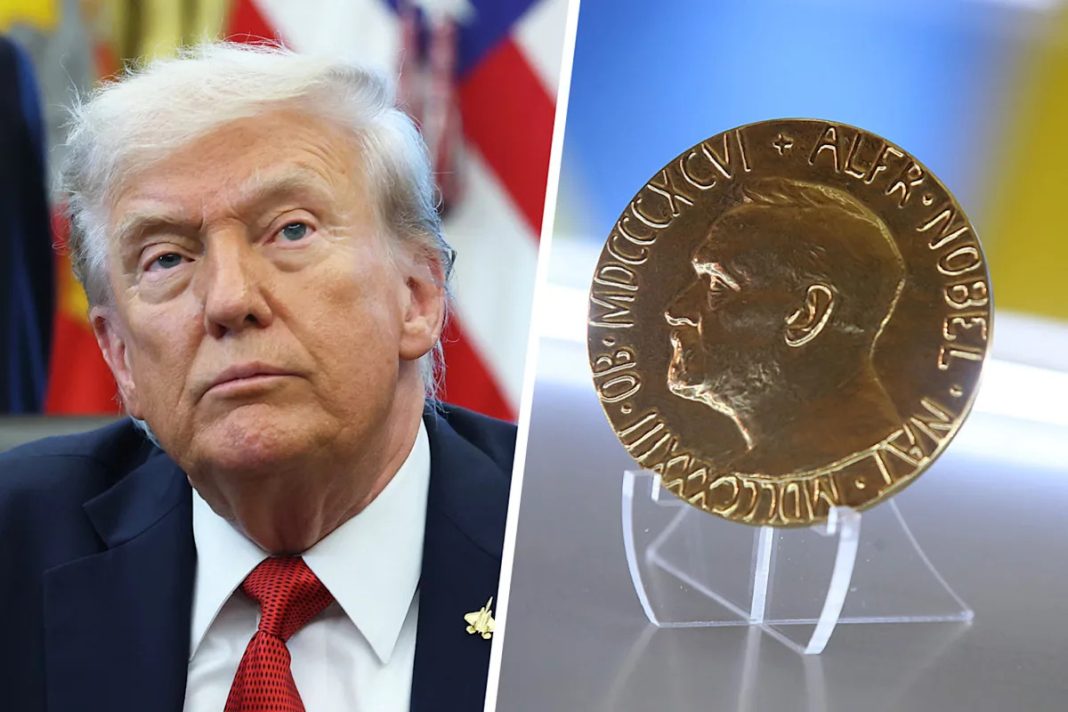When news broke that Israel and Hamas had accepted a deal to end the Gaza war, a good number of American media — including both straight news reporters and opinion columnists — covered it through the lens of President Donald Trump’s quest for the Nobel Peace Prize. “I hope … President Trump is showered with praise,” wrote New York Times columnist and longtime Middle East writer Thomas Friedman in an article headlined “Give Trump the Nobel for Gaza, if He Does the Harder Parts to Come.”
Trump’s quest for the Nobel peace prize has become a common press frame for international affairs, from Gaza to Ukraine to India-Pakistan, highlighting how much news and public discourse have become warped around one man’s pathologies.
But let’s take a deep breath for a reality check and remember: Trump is not the protagonist of human events. And to the extent he’s a significant character in world affairs, whether or not he gets a prize is one of the least important things about it.
The Nobel peace prize committee is unlikely to award a president ordering a secret police force to violently detain and disappear people on U.S. soil without due process. It is equally unlikely to give a peace prize to a leader ordering his nation’s military to blow up civilian boats in the Caribbean because he says without evidence they’re drug traffickers, in violation of the laws of armed combat.
The Nobel committee made bad calls before — such as Henry Kissinger, who was still overseeing bombing in southeast Asia; Burmese activist Aung San Sui Kyi, who later became the leader of the Myanmar government and oversaw ethnic cleansing; or President Barack Obama, who hadn’t done anything at the time besides win the 2008 presidential election — but that doesn’t mean they should again.
Trump took office in January with a Israel-Hamas ceasefire in place, brokered by Egypt, Qatar and the Biden administration. Soon after, Trump announced a vision for Gaza as a U.S.-owned resort area, with the nearly 2 million Palestinians living there gone. Israel restarted military operations in March, imposed famine by blocking most food aid, and outraged a lot of the world by starving children. Tens of thousands of dead Palestinians later, the Trump administration helped broker another ceasefire this month, along with Qatar, Egypt and Turkey.
We now have the third Israel-Hamas deal to stop shooting and exchange prisoners — the first was in November 2023 — and virtually no media framed the previous two ceasefire deals around the theme of “Give Joe Biden the Peace Prize.” This deal is similar to the agreement that collapsed in March, but not identical, and in some ways more ambitious. However, as national security writer Robert Farley argues, the biggest difference is in the security situation, especially Israel’s relatively successful “12-day war” with Iran, not in the diplomatic approach.
That improves the chances of success, but difficult questions of implementation remain, as do the underlying political obstacles. If it works, that’s great, and credit to all involved is well-deserved. But the most relevant things would be relief from war for millions of people in Israel-Palestine and around the Middle East, greater opportunity to address the humanitarian disaster in Gaza, a new regional security dynamic, and America’s role in it — not whether one guy gets a prize he covets.
If anything, the president of the United States appearing to pressure an allied country because it’s where the Nobel committee meets — the Norwegian government doesn’t decide who wins — is a story on its own. An unhinged leader undermining national interest for shallow selfish reasons.
But that’s old news. He’s like that a lot, and with a variety of things. On the Nobel specifically, Trump has repeatedly falsely stated that he “ended seven wars” — some are still going, others he had no involvement in — and his lackeys demand praise and prizes for him no matter what he does (or doesn’t do).
That makes the behavior more concerning, not less. But still, it’s more of the same, and a lot of media sees that as unexciting. By contrast, a “will they/won’t they” narrative has more immediate entertainment value than the slow, unglamorous work of diplomatic negotiations.
Will Donnie get the prize he wants, or will his many enemies thwart his ambitions? Check back next episode of The Real Housewives of International Relations!
There has been a tendency in a lot of American media during Trump’s second term to praise him whenever the opportunity arises — or at least to be seen praising him — as if they need to make up for all the factually accurate reporting that makes him look awful. That’s another way Trump and MAGA have managed to distort the information space. Reporting what the president says and does is perceived as “biased” by his supporters and sympathizers — because his words and actions are so often embarrassing, immoral, incompetent and un-American — so in the name of “fairness” they have to make him look better than reality does.
Another possibility is that some publications and pundits believe they can improve U.S. policy by heaping praise on any positive effort, like the president is a child. It’s not clear that’s ever worked, but it does illustrate how the media has helped Trump shift the United States from a constitutional republic to a more personalist regime, based on the whims and ego of one man rather than law and institutions.
If Trump deserves a prize for anything, it’s media manipulation.
This article was originally published on MSNBC.com

